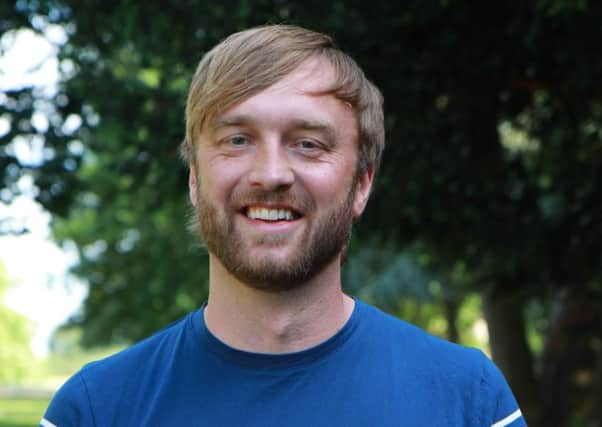Stuart Weir: society does not flourish if everyone does their own thing


To believe that you have broken free from inhibiting obstacles that prevent you from really living is understood to be nothing short of liberation. The goal is that we can make ourselves into anyone or anything without any impinging factors that restrict us.
For some, this is a very intentional task – deconstructing the hindrances that were imposed on us during our upbringing or that surround us in everyday relationships or workplaces. For others, this is more of a sleepwalk – there is no deliberate act to remake ourselves, but it just so happens that the process of self-determination takes place because there is the open atmosphere to do so.
Advertisement
Hide AdAdvertisement
Hide AdWhatever influences us, moves us or attracts us are the passions which begin to make up the shape of our lives. This fusion of unmuzzled hedonism and postmodernism, deliberate secular humanism or liberative feminism purports to be my way to flourishing. You have your way and I have mine – ‘each to their own’.
Any new thing is valued because it has been determined by the individual in the court of his/her experience. There is no proper appeal to this.
But is unbridled self-determination all it’s cracked up to be? What kind of people, what sort of society do we create if we discard all received wisdom that’s come before us?
Granted, each generation discerns whether to take on the values of their parent(s) or whether to diverge from what’s been inherited. There’s no question mark on that point. In fact, there is great health in being able to assess and discard toxic patterns from the generation before us. As human beings we’re always responding to aspects of life that we dislike and believe should be changed. Altering what we rate as poor or detrimental is part of the warp and weft of life.
But to jettison all and any values and virtues because they “pervert entirely these natural sentiments”, as Hume once chided, is to assert that we always know better than our forebears. The big question that needs answered by those hurtling down the self-determinative path is, what do you replace inherited wisdom with? To the postmodern hedonist it matters not a jot.
Life is a rollercoaster. My individual opinion always holds, they claim. But is it sufficiently satisfying to erase all that came before in the name of individualistic progress without having an alternative vision for the ‘good life’ by which to adhere to? Where has self-determination got us to? Perhaps its record will prove me wrong.
On the watch of self-determination, family breakdown is massively on the increase. In fact, if this trajectory continues, any child born today in the UK has more than a one in three chance of not living with both birth parents by the age of 15. Although unmarried parents make up just 20 per cent of all couples with children in the UK, they account for 51 per cent of annual family breakdown.
Family breakdown is the single biggest predictor of internalised and externalised problems for boys and girls. Children are now more likely to have a smartphone than a father at home. These strains are brought into schools making education at times extremely fraught and very often reduced to crowd control.
Advertisement
Hide AdAdvertisement
Hide AdI learned of a high school in North Ayrshire that has a resident police officer because there is so much violent disruption. Scotland’s health is on a grave descent with NHS waiting lists groaning and mental ill health having become ubiquitous. Scotland’s prisons are nearly at full capacity, putting undue pressure on inmates and staff, with immense strain on budgets and the wonder if there is a true commitment to prisoner rehabilitation.
All under the watch of self-determination. Is no one else asking why?
The project of the autonomous self is not helping Scotland. Society is sinking under the weight of failure and downward spirals on almost every front. Why don’t we look for wisdom external to the ‘Great and Only Me’ and see if we have the humility to accept that going it alone has not brought about human flourishing? Without the retrieval of wisdom in our past, and by acknowledging that self-determination has not only crushed us, but also Scottish society, we can begin to clear some ground to repair where we live.
Stuart Weir, national director of CARE for Scotland.